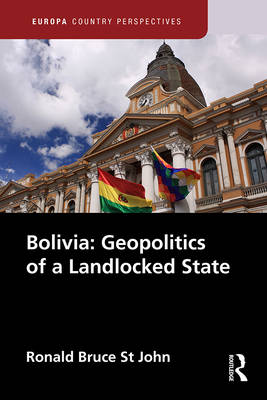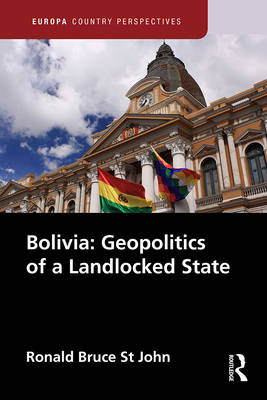
- Retrait gratuit dans votre magasin Club
- 7.000.000 titres dans notre catalogue
- Payer en toute sécurité
- Toujours un magasin près de chez vous
- Retrait gratuit dans votre magasin Club
- 7.000.000 titres dans notre catalogue
- Payer en toute sécurité
- Toujours un magasin près de chez vous
Description
Bolivia: Geopolitics of a Landlocked State goes beyond the traditional focus on inter-American relations, territorial issues and the maritime question to provide the first comprehensive study of Bolivian foreign policy from independence to the present day. It aims to redress the balance between the often overstated importance of external determinants - actors and forces outside Bolivia which have influenced the foreign policy process - and the understated impact of internal determinants, similar actors and forces within Bolivia.
Drawing on 50 years of research and study, the author focuses on the five interrelated goals of sovereignty, national security, territorial integrity, continental solidarity and economic independence, which have characterized Bolivian foreign policy from the outset. In so doing, the negative impact which poor governance, weak state capacity and a fixation on the seaport issue had on the achievement of those five goals is centre stage in the discussion. In acknowledging the geopolitical ramifications of being landlocked, the singular nature of Bolivia's approach to the problem also is detailed.
An examination of foreign policy today can no longer be confined to intergovernmental relations; instead, it must consider the full range of internal and external forces which have influenced its scope and direction. In addition to bilateral relations, boundary disputes and the seaport issue, this volume explores the impact of foreign capital and multinational companies, together with the effects of domestic entrepreneurs, political parties, labour unions and social movements. It also assesses the overlap or linkage between domestic and foreign variables when the two combined to influence Bolivian foreign policy.
Spécifications
Parties prenantes
- Auteur(s) :
- Editeur:
Contenu
- Nombre de pages :
- 262
- Langue:
- Anglais
- Collection :
Caractéristiques
- EAN:
- 9781857439694
- Date de parution :
- 23-07-19
- Format:
- Livre relié
- Format numérique:
- Genaaid
- Dimensions :
- 157 mm x 236 mm
- Poids :
- 521 g







